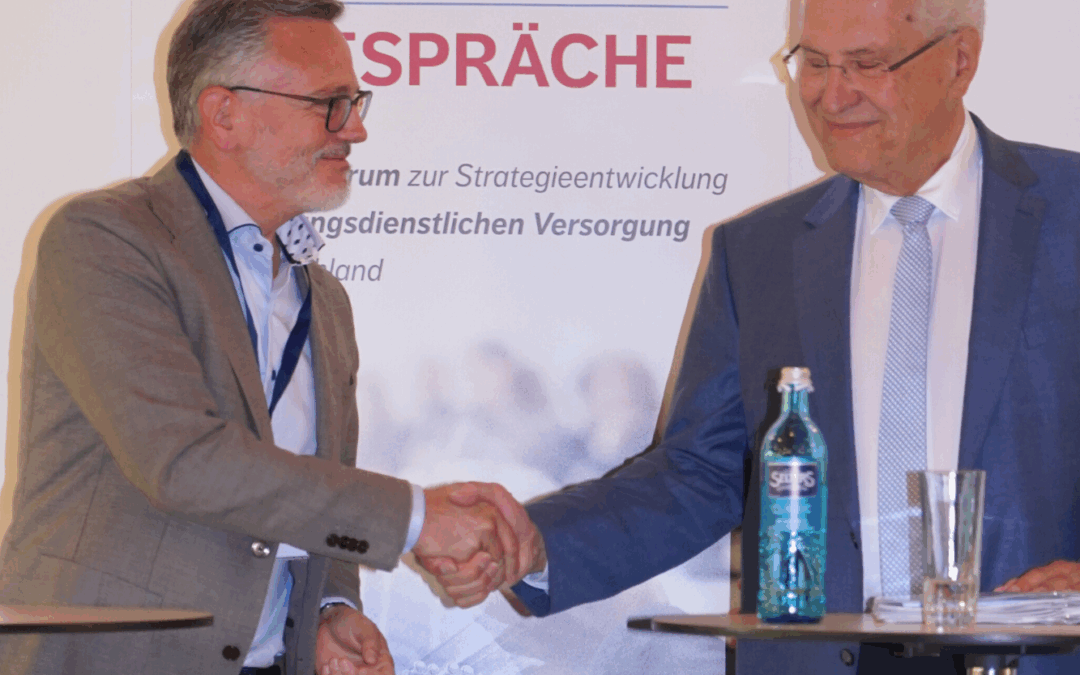Experts from the emergency medical services, education, hospitals, science, associations and politics accepted the invitation from the Institute for Emergency Medical Education (INOB) to the third Fürth Talks, which focused on the topic of “Case-closing processing of low-priority operations in the emergency medical services – along the entire supply chain”. Bavaria’s Minister of the Interior, Herrmann, emphasized the importance of close intersectoral cooperation.
Around 40 experts came together in the Fürth town hall. Experts from Austria, Switzerland and Canada contributed international experience, the applicability of which to the situation in Germany was discussed.
Bavaria’s Minister of the Interior, Joachim Herrmann, patron of the event, emphasized in his speech: “We can only achieve our common goal of ensuring that the population continues to be provided with emergency medical services in the future if the preclinical, clinical and contract medical sectors work closely together. This is the only way to meet the challenges facing the rescue service system. The Fürth Talks provide an important platform for this.”
Klaus Meyer, host and Managing Director of INOB, was very satisfied with the results: “Education in emergency care is of central importance in the upcoming reforms. We have succeeded in providing important impetus for further professionalization and skills development along the rescue chain.”
Co-host Prof. Dr. med. Harald Dormann, Medical Director and Chief Physician of the Central Emergency Department at Fürth Hospital and Scientific Director at INOB, added: “We were able to clearly identify the key challenges and urgent need for action during the one and a half days. The great strength of the Fürth talks – bringing together interprofessionalism and scientific expertise with professional policy foresight and sound practical know-how – came to the fore here.”
Several working groups defined the cornerstones for a position paper that will be published shortly in specialist media. This will contain specific recommendations for action that are intended to provide political, social and official decision-makers with guidance.
This is because important legislative processes, such as hospital reform, emergency reform or rescue service reform, which have come to a standstill due to the change of government, need to be continued. The optimization and relief potential in connection with low-priority operations should definitely be taken into account.
